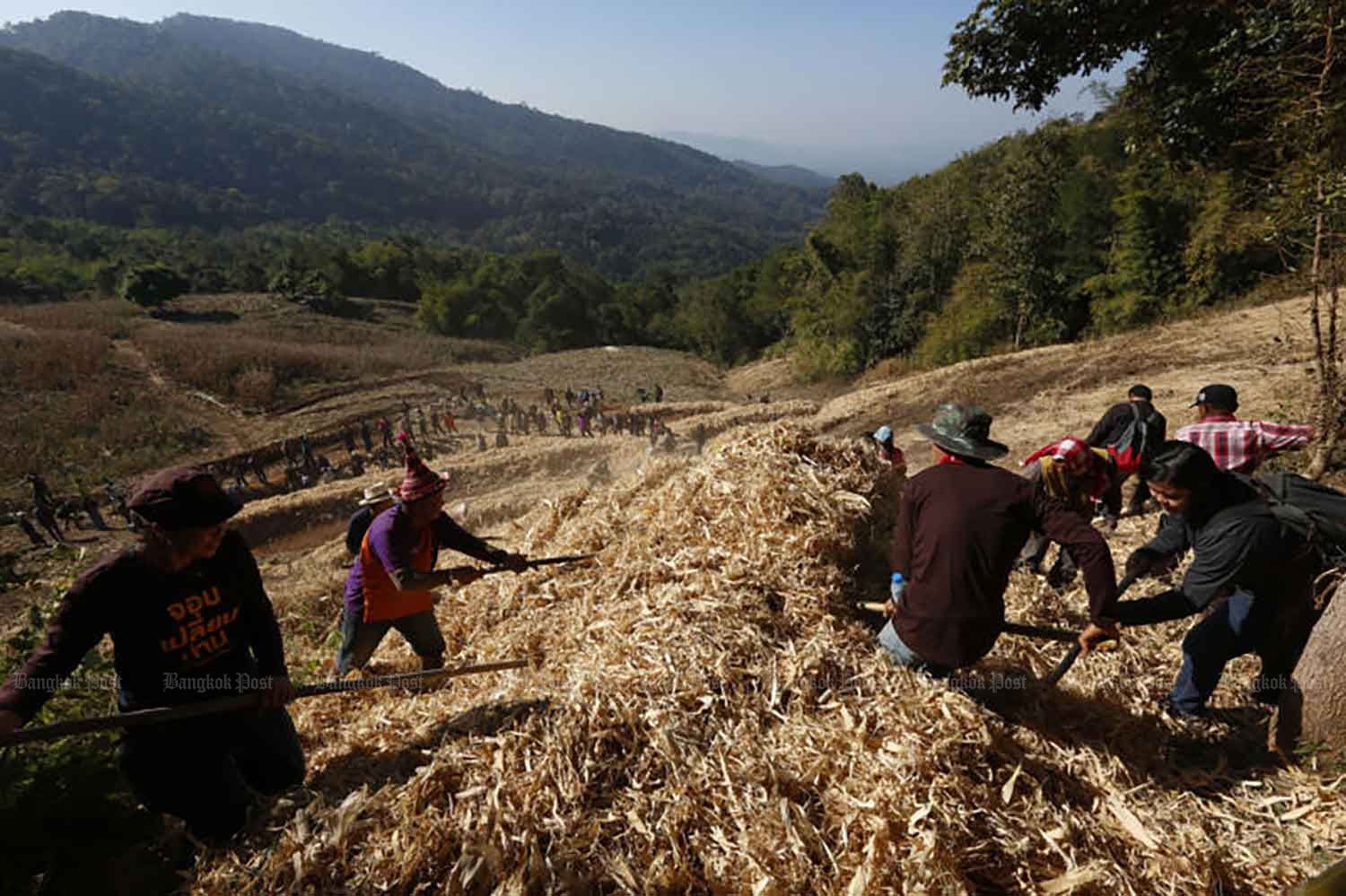Government considers corn import ban to combat PM2.5 dust pollution

A potential ban on corn imports from neighbouring countries next year is being considered by the government to tackle the escalating issue of PM2.5 fine dust pollution in the northern regions. Prime Minister Srettha Thavisin recently visited Chiang Mai to assess the preventive actions and updates provided by government agencies regarding wildfire and haze prevention measures.
The prime minister has acknowledged discussions with the Cambodian and Laotian ministries, along with the commander-in-chief of the Myanmar army, regarding the issue. He expressed his concerns, questioning what measures could be implemented to prevent neighbouring countries from burning, without infringing on their sovereignty.
The Thai prime minister highlighted that the solution lies in prohibiting corn imports from neighbouring nations during the peak season. He even suggested an increased taxation system but expressed concerns that this might be dismissed by involved state agencies as mere talk. However, he stressed the urgent need to take these measures seriously and announced that corn imports would be banned from January to April next year.
The 62 year old PM acknowledged that the PM2.5 dust pollution issue stems from economic problems. Farmers resort to burning to dispose of agricultural waste and prepare land for new cultivation. Some rural villagers also burn forests in search of wild supplies.
Thus, PM Srettha emphasised the necessity for innovative solutions and military cooperation in managing agricultural waste to prevent farmers from burning it. He also underscored the importance of educating farmers to equip them with the necessary skills and knowledge.
The Bangkok-born premier revealed that additional funding for wildfire prevention and extinguishing has been approved by the government recently. He also discussed the issue of traffic congestion, another contributing factor to PM2.5, with the transport minister and other agencies.
Even though the fine dust levels were reported to be lower at certain points this year compared to the previous year, PM Srettha admitted that some provinces, including Chiang Mai, have experienced a surge in fine dust levels, reaching global peaks. However, hotspots decreased to a third of the previous year’s numbers, reported Bangkok Post.
As per IQAir, Chiang Mai topped the list of the world’s 10 cities with the highest levels of air pollution. The list also included Lahore in Pakistan, Beijing in China, Delhi in India, and Dhaka in Bangladesh.
Latest Thailand News
Follow The Thaiger on Google News:


























